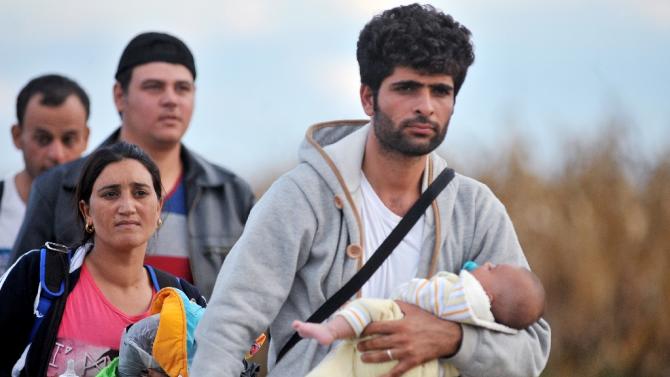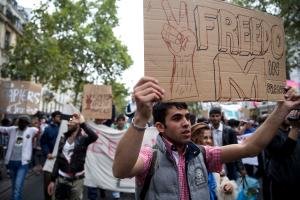Date: Sun, 4 Oct 2015 23:14:16 +0200
Paris (AFP) - The EU's border agency chief has pleaded for radical changes to the way Europe is dealing with its migrant crisis as he revealed 630,000 people have entered the bloc illegally so far this year.
"We registered about 630,000 illegal border crossings as of the end of September," Frontex executive director Fabrice Leggeri told the French Ebra press group in an interview to appear on Monday.
"Member states must understand that in place of deploying hundreds of police at their national borders, it would be more useful to send them to the (EU's) external border," he said.
"The real frontier," he added, is "Lampedusa, Lesbos and Melilla," referring to some of the epicentres of Europe's migrant and refugee crisis.
"If every state manages the crisis on their own, without coordinating with their neighbours, the (migrant) flux will go from one country to another, to everyone's cost."
While doubling the number of Frontex staff to be stationed in frontline Greece to around 200 was progress, he claimed that "if we had one or two thousand European border guards to help the Greek authorities, it would have a spectacular effect on the crisis there."
While Europe is relying on huge new so-called hotspot camps in Greece and Italy to hold migrants while their claims for asylum are processed, he claimed than on average only "39 percent of deportation orders are carried out" -- mostly because the migrants' countries of origin refuse to take them back.
"Let's be realistic, if we want to send illegal migrants back to their countries of origin, we will need detention facilities, in the hotspots in particular," Leggeri said.
And he dismissed a European border force evoked by EU Commission President Jean-Claude Juncker as "not feasible in the medium term".
"We have to go towards a more integrated management of our borders... which would allow Frontex in certain cases to intervene in a crisis without waiting for the member states in question to ask for it," he insisted.
Leggeri predicted that "migratory pressure is a long-term challenge", even if "we succeed in bringing under control within the next year the brutal, unprecedented flow we are now facing."
"I do not see a short-term solution in Syria or in the Horn of Africa," he said, "or between the difference in development between Europe and sub-Saharan Africa" -- areas from which many of those seeking a better life in Europe are coming from.

